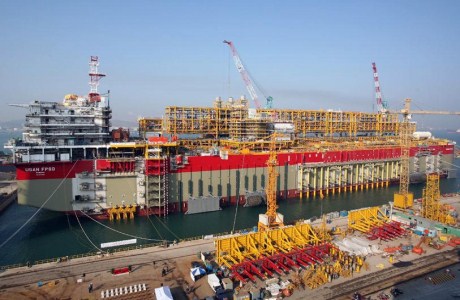Total’s Usan oil field, which commenced production last Friday, is expected to generate for Nigeria an income of $22.25m (N3.49bn) daily with its capacity to produce 180,000 barrels per day of crude oil.
Based on $123.61 price per barrel at an exchange rate of N157 per dollar as at Monday, the country is expected to make over N3.49bn daily from the field.
Total, which operates Oil Mining Lease 138, delivered the project as scheduled. Usan is the second deep offshore development operated by the company in Nigeria, coming on stream less than three years after Akpo.
The country currently produces over 2.5 million bpd of crude oil and condensate per day.
Discovered in 2002, the Usan field lies around 100 kilometres off the South East Nigerian coast in water depths ranging from 750 metres to 850 metres.
The Usan development comprises a spread moored Floating Production, Storage and Offloading vessel designed to process 180,000 barrels per day and with a crude storage capacity of two million barrels.
Commenting on the achievement, the President, Exploration and Production, Total, Mr. Yves-Louis Darricarrère, said on Friday, “I am particularly proud to announce start-up of this major project together with the concession holder, the Nigerian National Petroleum Corporation. This project demonstrates the ability of Total, a key operator of large-scale deep offshore developments in the Gulf of Guinea, to lead ambitious projects that will contribute to increase production for the group and for the country.
“Total, as operator, has introduced a number of technological innovations, among which is a solution that drastically reduces gas flaring and thus minimises the project’s environmental impact. The development of Usan has involved a record 60 per cent of local content man-hours and thus has contributed to strengthening the know-how of the Nigerian industry in the area of hydrocarbon exploitation in the deep offshore.”



